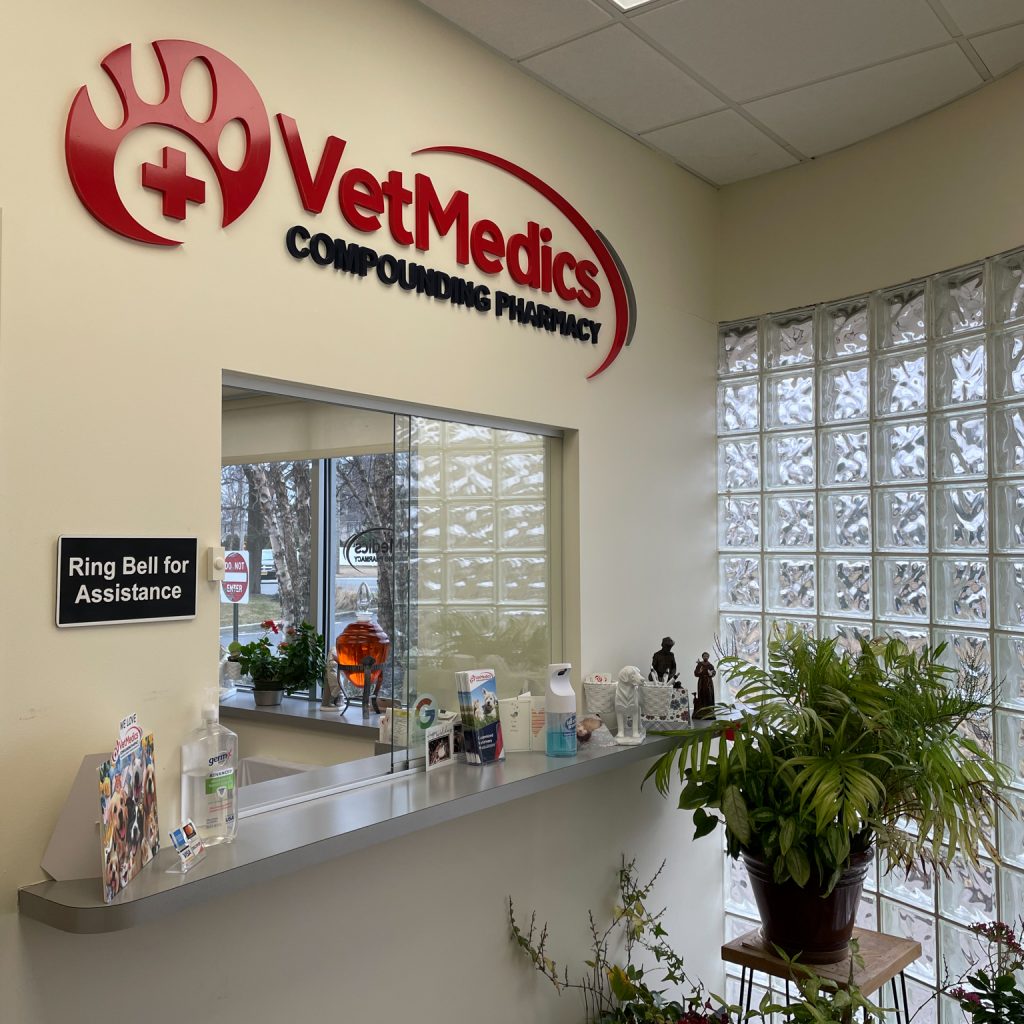
TAKE UNCERTAINTY OUT OF YOUR PETS’ MEDICAL CARE.
Veterinary Compounding
Compounding, or the preparation of customized medications, is an increasingly popular solution to veterinary patient and human patient problems. When it comes to things like skin rashes, eye and ear infections, heart conditions, cancer, and diabetes, animals and humans have a lot in common. But giving pets medication presents a unique set of challenges that that can be addressed through compounding.
Problem, Meet Solution
Cats are notorious for refusing to swallow pills (you probably have the scratches to prove it), and they will usually eat right around one disguised in food. Administration can be equally tricky with dogs- a dose of medication that is therapeutic for an 80-pound Golden Retriever could be deadly for a six-pound Yorkie. Large and exotic pets, such as horses, rabbits, birds, ferrets, and reptiles, all pose a variety of different medication challenges, too. But the solution is often the same for them all: veterinary compounding.
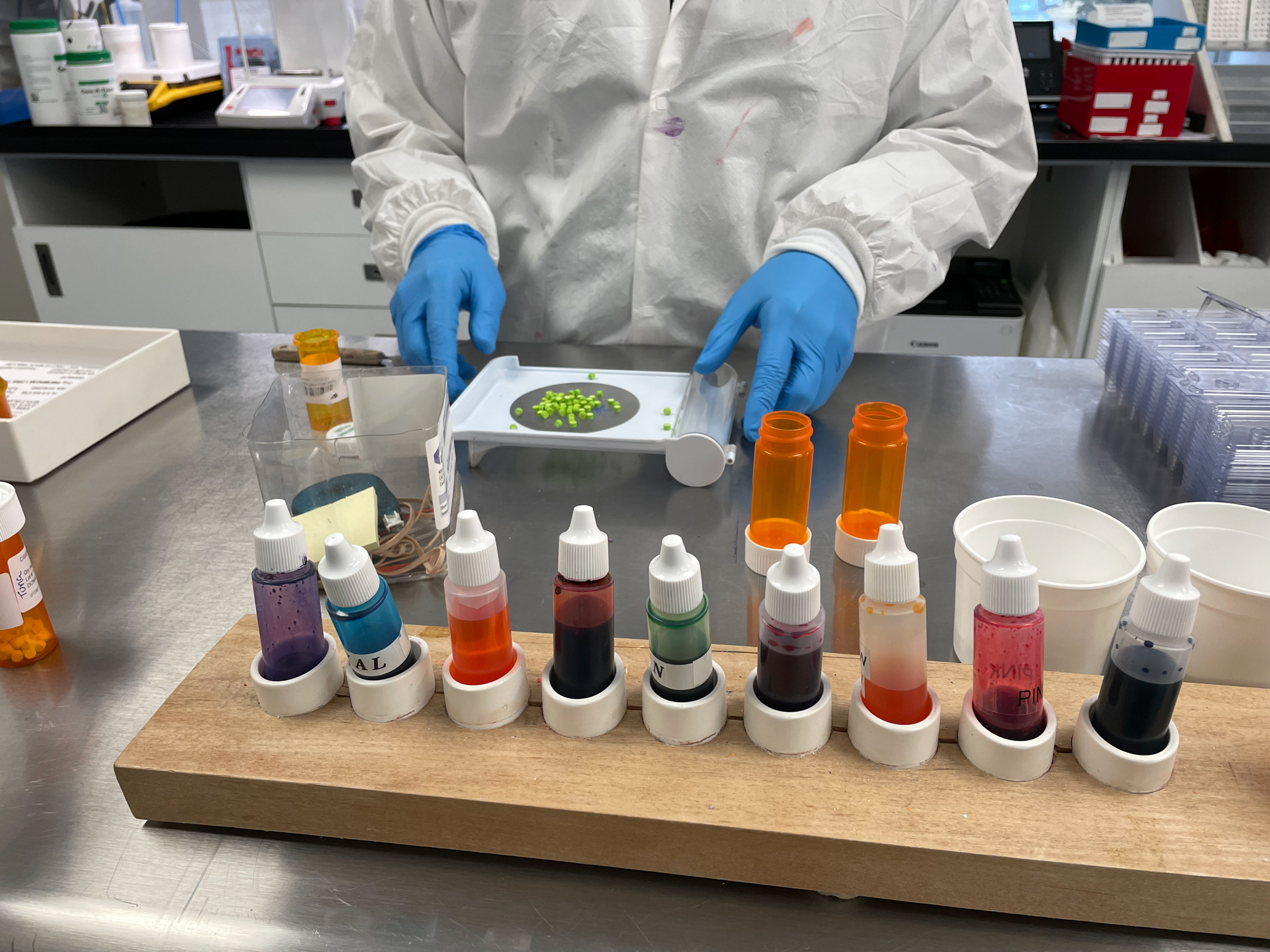
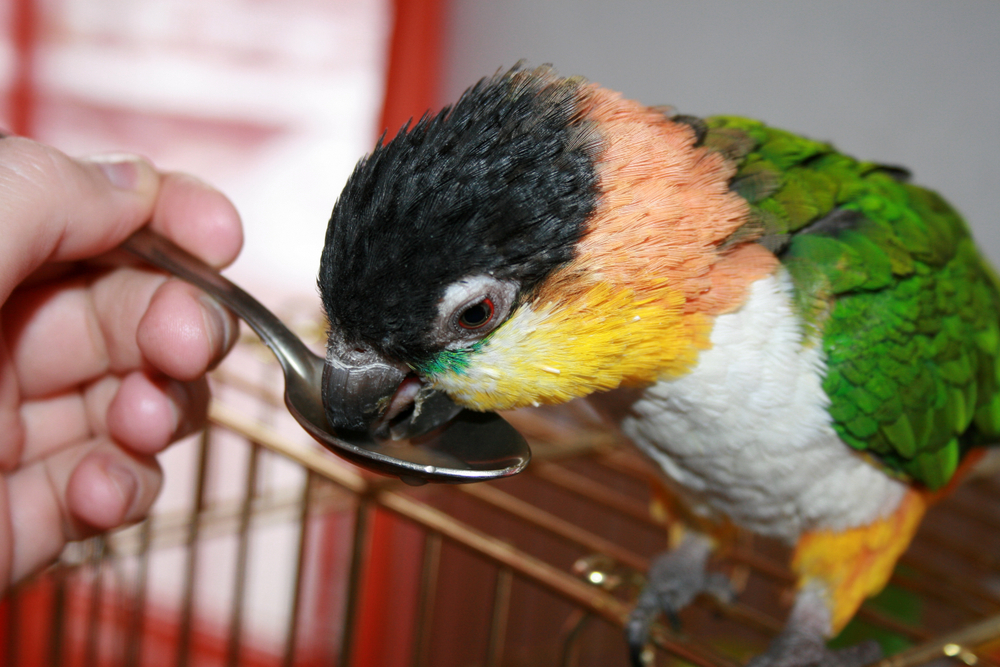
In Good Taste
Compounding is ideal for pets that will not take medication because of the taste. Cats do not like pills, but they do like tuna. Dogs are not wild about medication being squirted into their mouths, but they will take it gladly when it is meat-flavored or part of a tasty treat. Birds cannot take large volumes of liquid medication, but they will open wide for a small dose of a tasty, fruity-flavored, concentrated solution. A compounding pharmacist can work closely with your vet to prepare medicines in easy-to-give, flavored dosage forms that pets of all kinds will happily devour.
Right-Sizing
Just like their owners, pets are unique. They come in all shapes and sizes and may be sensitive to ingredients like lactose. It makes sense that commercially available medicines are not always appropriate for each and every pet. But with compounding, your veterinarian can prescribe a treat, liquid or other dosage form with the exact ingredients, flavor, and dose that is right for your pet.
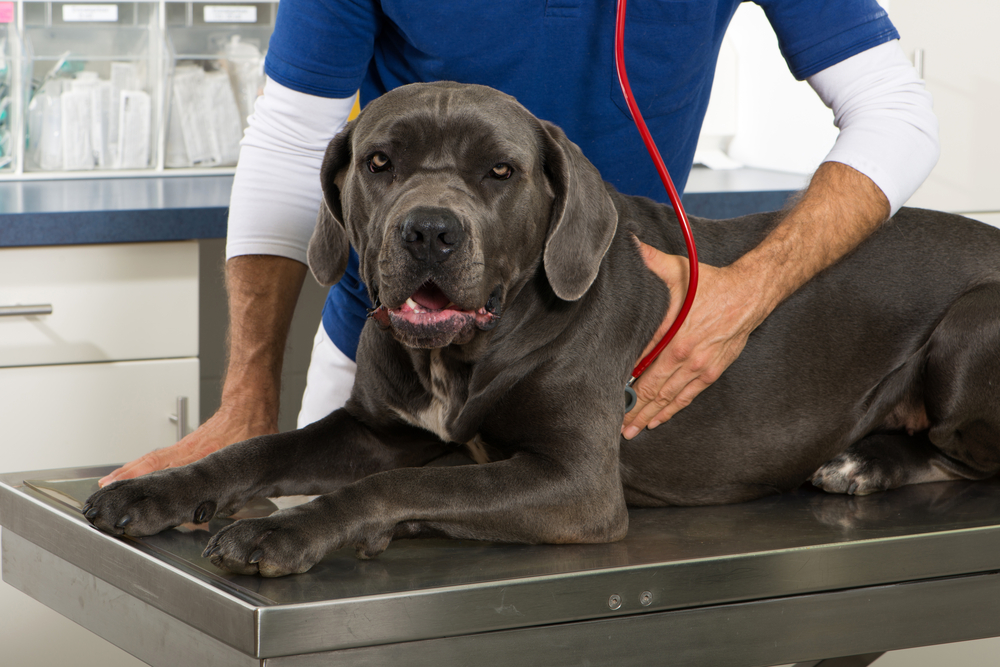
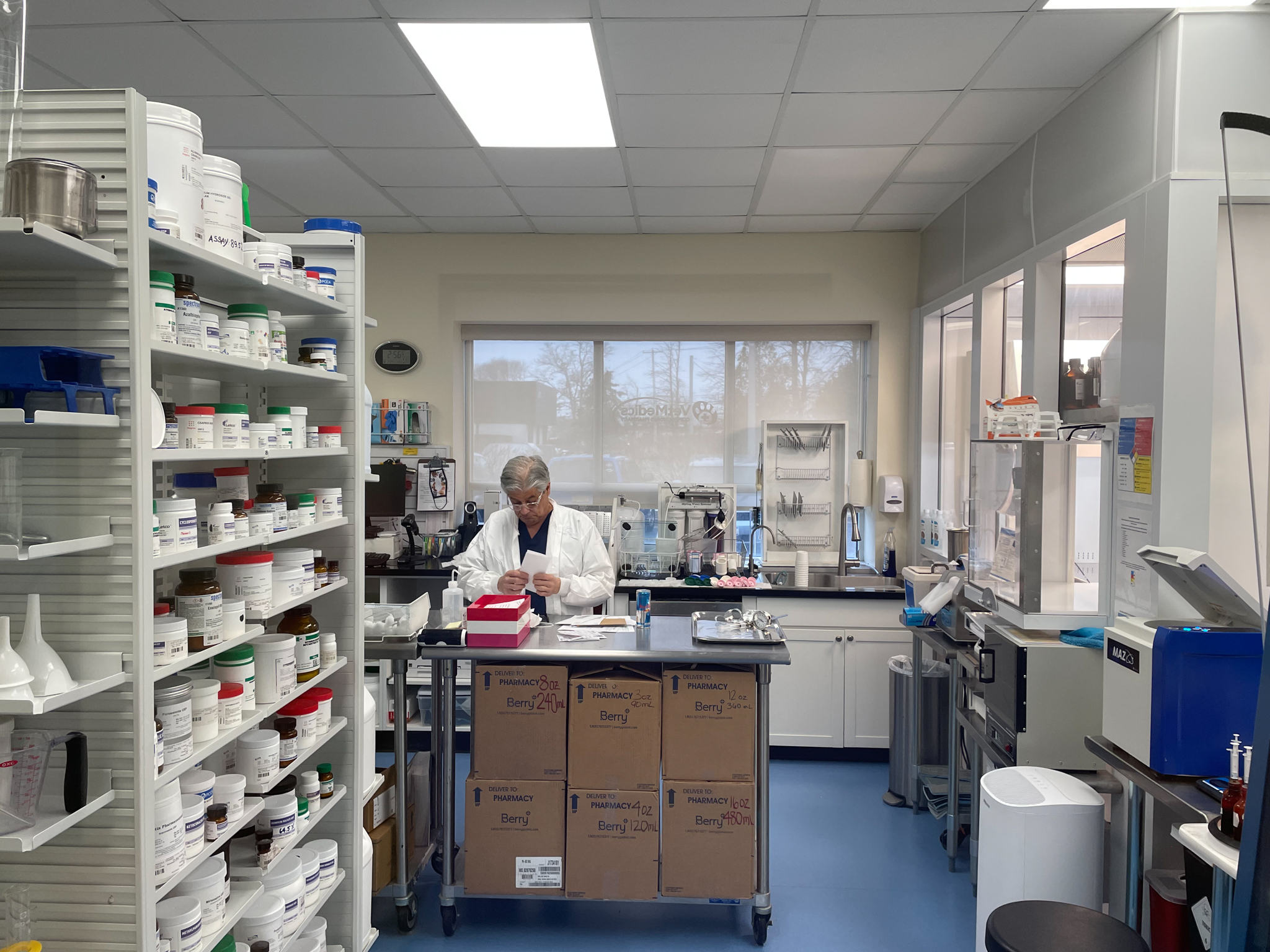
To Be Continued
Sometimes, manufacturers discontinue a veterinary medication because there’s not enough demand to make mass production cost effective. But that does not mean there are not still pets that need it. When a medication that has worked well for your pet is not commercially available, a compounding pharmacist can prepare a prescription and tailor the strength, dosage form, and flavor to meet you patient’s specific needs.
Finding veterinary patient solutions is a team effort.
Make medicine time a treat. A caring health care provider working closely with a compounding pharmacist can help make medication administration easier for both you and your pet.
Ask your health care provider or pharmacist about compounded medications today.
Ask your health care provider or pharmacist about compounded medications today.

 CLINIC LOGIN
CLINIC LOGIN CLINIC SIGN-UP
CLINIC SIGN-UP





 CLINIC LOGIN
CLINIC LOGIN